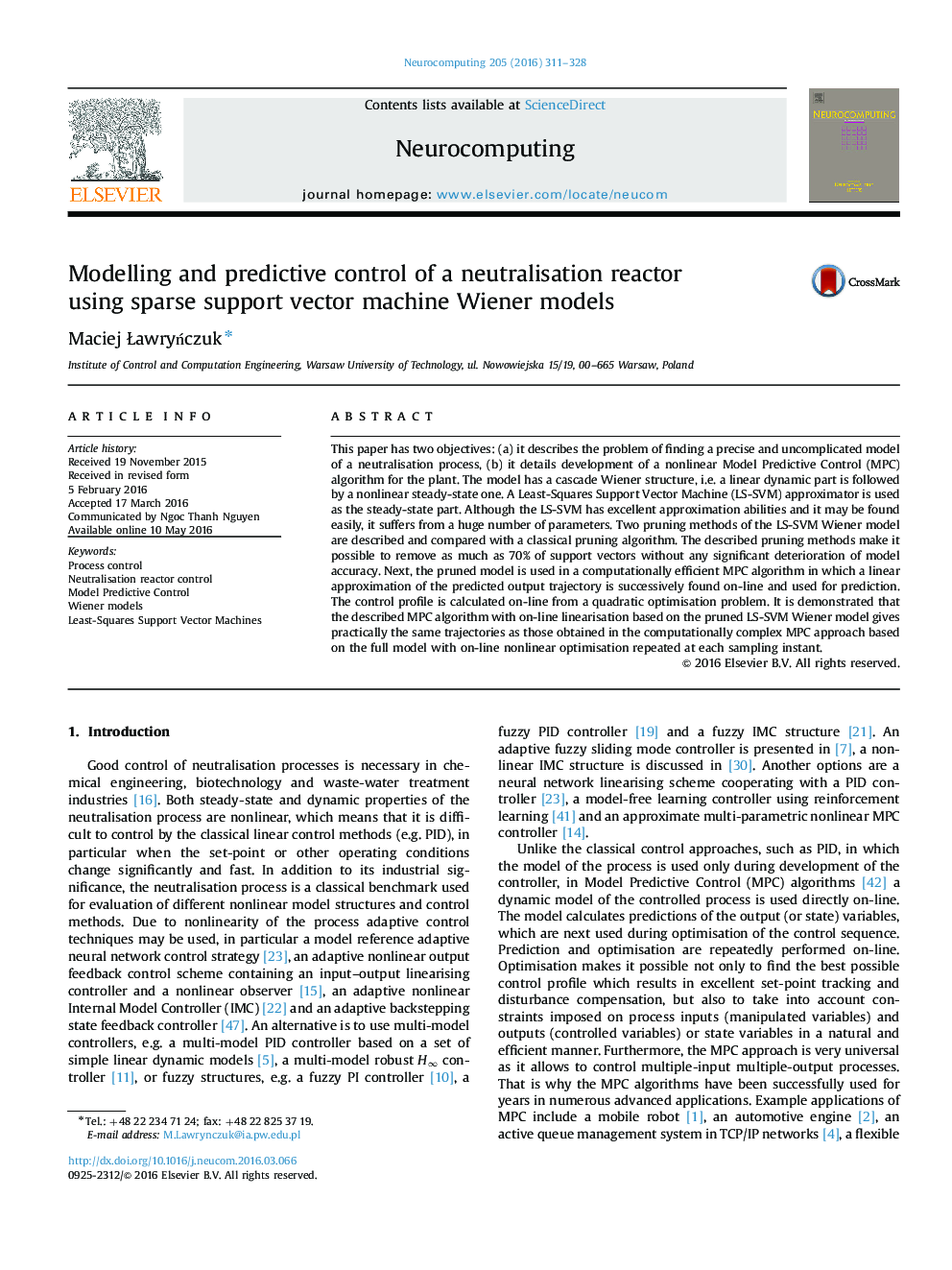| Article ID | Journal | Published Year | Pages | File Type |
|---|---|---|---|---|
| 405702 | Neurocomputing | 2016 | 18 Pages |
•70% of support vectors may be pruned without important deterioration of model accuracy.•The pruned model is used in MPC algorithm with on-line trajectory linearisation.•In MPC quadratic optimisation is used on-line, nonlinear optimisation is not necessary.•MPC with linearisation is 6 times less computationally demanding than MPC with nonlinear optimisation.•Model pruning makes it possible to further reduce computational effort some 3 times.
This paper has two objectives: (a) it describes the problem of finding a precise and uncomplicated model of a neutralisation process, (b) it details development of a nonlinear Model Predictive Control (MPC) algorithm for the plant. The model has a cascade Wiener structure, i.e. a linear dynamic part is followed by a nonlinear steady-state one. A Least-Squares Support Vector Machine (LS-SVM) approximator is used as the steady-state part. Although the LS-SVM has excellent approximation abilities and it may be found easily, it suffers from a huge number of parameters. Two pruning methods of the LS-SVM Wiener model are described and compared with a classical pruning algorithm. The described pruning methods make it possible to remove as much as 70% of support vectors without any significant deterioration of model accuracy. Next, the pruned model is used in a computationally efficient MPC algorithm in which a linear approximation of the predicted output trajectory is successively found on-line and used for prediction. The control profile is calculated on-line from a quadratic optimisation problem. It is demonstrated that the described MPC algorithm with on-line linearisation based on the pruned LS-SVM Wiener model gives practically the same trajectories as those obtained in the computationally complex MPC approach based on the full model with on-line nonlinear optimisation repeated at each sampling instant.
